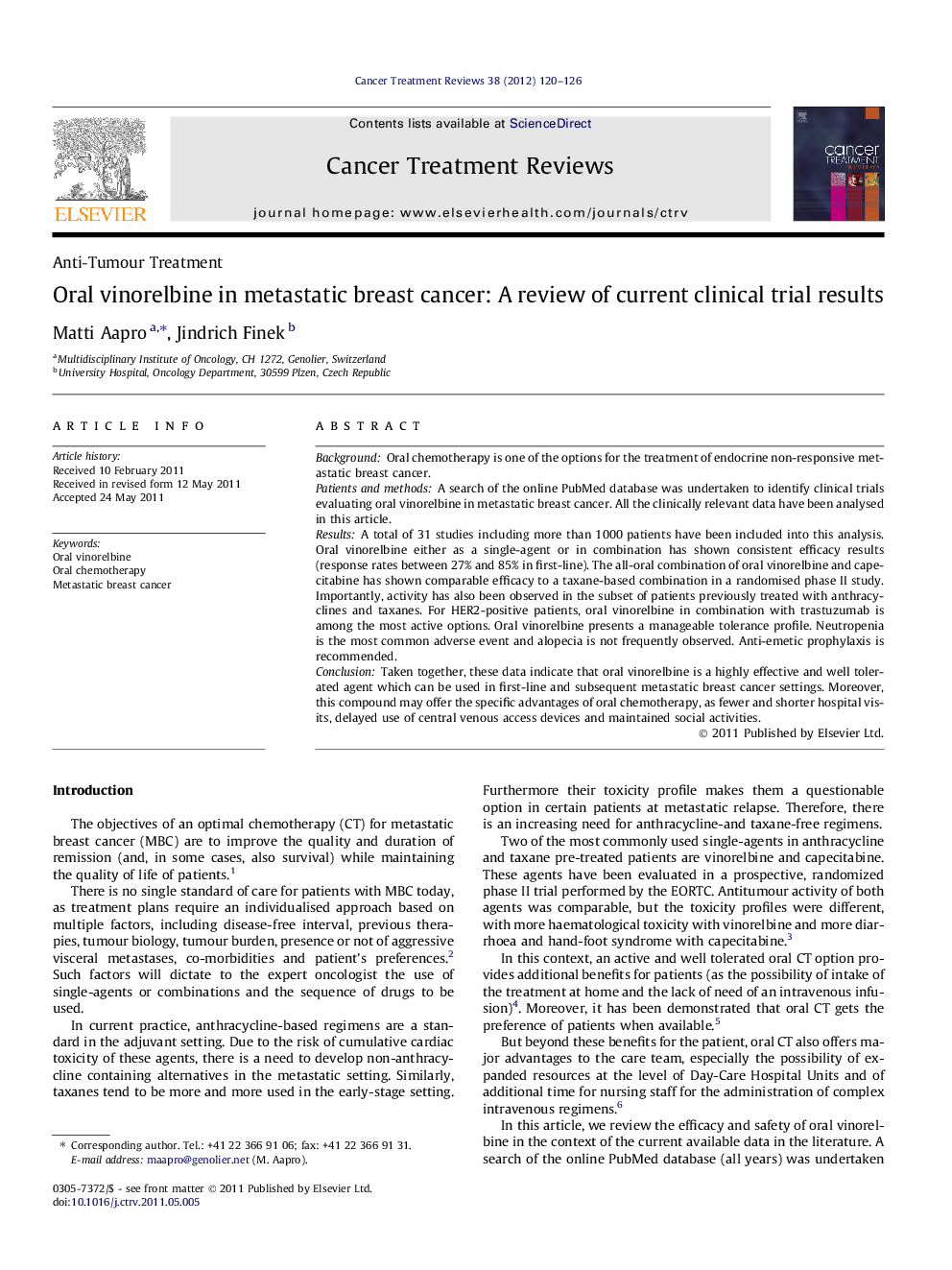| Article ID | Journal | Published Year | Pages | File Type |
|---|---|---|---|---|
| 3980058 | Cancer Treatment Reviews | 2012 | 7 Pages |
BackgroundOral chemotherapy is one of the options for the treatment of endocrine non-responsive metastatic breast cancer.Patients and methodsA search of the online PubMed database was undertaken to identify clinical trials evaluating oral vinorelbine in metastatic breast cancer. All the clinically relevant data have been analysed in this article.ResultsA total of 31 studies including more than 1000 patients have been included into this analysis. Oral vinorelbine either as a single-agent or in combination has shown consistent efficacy results (response rates between 27% and 85% in first-line). The all-oral combination of oral vinorelbine and capecitabine has shown comparable efficacy to a taxane-based combination in a randomised phase II study. Importantly, activity has also been observed in the subset of patients previously treated with anthracyclines and taxanes. For HER2-positive patients, oral vinorelbine in combination with trastuzumab is among the most active options. Oral vinorelbine presents a manageable tolerance profile. Neutropenia is the most common adverse event and alopecia is not frequently observed. Anti-emetic prophylaxis is recommended.ConclusionTaken together, these data indicate that oral vinorelbine is a highly effective and well tolerated agent which can be used in first-line and subsequent metastatic breast cancer settings. Moreover, this compound may offer the specific advantages of oral chemotherapy, as fewer and shorter hospital visits, delayed use of central venous access devices and maintained social activities.
